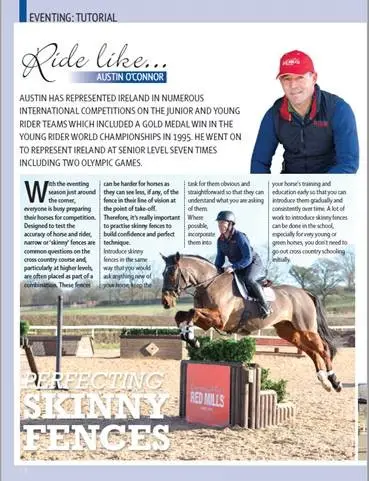Lockdown means, as well as being unable to compete, we are unable to do some of our favourite activities, and boredom can set in. But can boredom be beneficial? Aodhagán Conlon explains.

A study took place a number of years ago where participants were placed in a room with no phones, no screens, but with a large red button in front of them. The participants were warned that pressing the red button would provide a painful electric shock. Of all the participants, 25% of women, and 67% of men shocked themselves at least once. When asked to reason why they did, the most common reply was ‘I felt bored’. The experiment showed that some of us would rather experience pain than be bored.
Boredom is not having nothing to do, it’s when none of the available options to do something, interest you. This state of mind is characterised by a lack of concentration and feelings of restlessness and lethargy.
Recently, we have denied boredom mainly by technology, be it aimlessly scrolling through our smart-phones, or watching random documentaries on Netflix, and, as a result, we can become trapped in a state of semi-attention, neither focused nor passive. I am as big a culprit as anyone and find myself scrolling through Instagram while waiting the two minutes it takes for a coffee to be ready. Could this actually be counter-productive?
Ask yourself honestly-when was the last time you sat in a quiet space and did nothing and become bored?
While boredom is a warning that we are not doing what we want, it is also a motivator towards more meaningful projects. Allowing boredom to set in turns our attention inwards. This internal attention gives us time to allow matters of personal concern, however small or large, come to the surface.
Getting lost in internal thought, or ‘daydreaming’, relies on a subconscious system within the brain known as the Default Mode Network. Interestingly, while using this network, far larger areas of the brain are engaged when we daydream rather than when we pay specific attention to a task (e.g., watching a film). Using more areas of the brain allows more information (e.g., memories, experiences, conversations) to flow back and forth, breaking down and reconstructing personal ideas or concepts. The ‘rules’ of reality don’t exist as we daydream, allowing different perspectives and different possible solutions to form.

You can now see how boredom, leading to daydreaming, can be a source of creativity.
Simple experiment. The next time that you find yourself half-watching something, ready to start scrolling, stop yourself. Turn off your screens and sit with your thoughts for a while and allow your mind to wander.
A useful prompt can be to write a question that you may want an answer to, down on a piece of paper to start off a train of thought, but don’t be held to it. Allow the words to take you wherever they do. The question will be stored in your subconscious, and allowing the subconscious to work without restrictions, an answer may arise at a different moment, maybe even days later (known in cognitive psychology as incubation).
Perhaps you will look at the room that you’re in, you might want to paint it a different colour, re-arrange the furniture.
Perhaps it’s an issue you are having with a horse. It’s not managing its training load well, that it won’t go into water, it can’t jump a double cleanly.
If you wait long enough, what’s important will surface. It may seem small and trivial in the grander scheme of things, but if it is what comes to mind for you, it is far from trivial. If a possible solution or answer to your question arises, then you can then test it out, either by asking other individuals or in a real life experiment (Warning: best ask your partner before painting the kitchen blue).
These are unprecedented times for us personally, but not historically. Having time alone and being bored has happened before with profoundly beneficial effects; Isaac Newton came up with his theory of gravity while he was bored, at home, in quarantine from the plague.
Keep going and stay safe.
Aodhagán Conlon is former professional jockey who is currently training to become a chartered sports psychologist, was well as studying for a PhD at the University of Bath.
Follow him on Twitter @aodhaganconlon or Instagram @thebreathpsych.
Related Blogs


A world leader in premium-quality equine supplement solutions
Available in over 40 countries worldwide and with over 60 equine healthcare products in our range, we are experts in nutritional supplements that optimise the health and performance of your horse. Our expert nutrition team can provide you with tailored advice on our range of supplements that align with your feed of choice and our precision nutrition approach.
Learn More

A trusted name in comprehensive horse care solutions
Founded in 1765, Carr & Day & Martin is a leading international name in horse care solutions. With products spanning leather care, hoof care, coat care and healthcare, the Carr & Day & Martin range is renowned for being leading providers of equine health and care solutions.
Learn More

